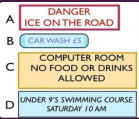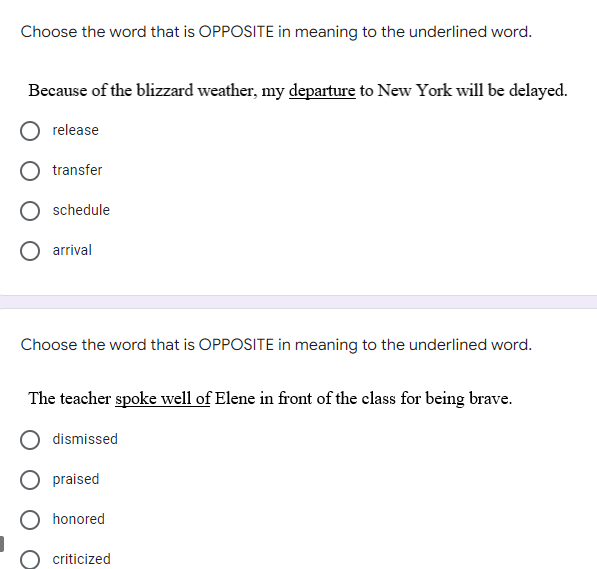Hãy nhập câu hỏi của bạn vào đây, nếu là tài khoản VIP, bạn sẽ được ưu tiên trả lời.


Complete the sentences with the correct form of the verb in brackets.
- If they left now, they(be) would be in London by lunchtime.

- You(not fail) wouldn't have failed the exam if you'd studied a bit harder.
- If we'd brought a map with us, we(not be) wouldn't be lost now.
- I(not speak) won't speak to him again unless he apologises.

- You can go to the party as long as you(come) come home before midnight.

- Had I known you were bringing your friends, I(prepare) would have prepared more food.

- Suppose your car broke down in the middle of nowhere, what(do) would you do?

- I'd go out tonight if I(not have to) didn't have to work tomorrow.
Complete the sentences with the correct form of the verb in brackets.
- If they left now, they(be) would be in London by lunchtime.

- You(not fail)wouldn't have failed the exam if you'd studied a bit harder.
- If we'd brought a map with us, we(not be)wouldn't be lost now.
- I(not speak)won't speak to him again unless he apologises.

- You can go to the party as long as you(come)come home before midnight.

- Had I known you were bringing your friends, I(prepare)would have prepared more food.

- Suppose your car broke down in the middle of nowhere, what(do)would you do?

- I'd go out tonight if I(not have to)didn't have to work tomorrow.

As this recent infographic illustrates, the most widely used language on the internet is English, which is used on more than half of all the pages on the web. Those pages cover every style of English – business, conversational, scientific reports, news, sports, debates, local dialects and more – which makes the internet an ideal resource for interactive learning.
While access to current English books or newspapers may not be easy, you can always use the internet to find content on almost any topic. Practise your English language learning by reading books or newspaper articles, listening to the radio or podcasts and by watching streaming videos of TV and film.
You can use the internet to shape your language studies. If you’re learning English to go on holiday, for example, you can look up detailed information about the place that you’ll be visiting. Or if you’re learning English for your career, you can find out more about the sector you work in, including common words and phrases, and industry-specific terminology.
One of the biggest advantages of using the internet to support your language learning is how much it can help you understand the culture of another country. This is especially true when it comes to watching video online. Watching the news, including sports coverage, or popular TV shows can help you see the world through the eyes of another country and give you an insight into how its culture differs from your own.
But perhaps the most exciting opportunity that the internet presents English language learners is the ability to communicate in real-time with native speakers. Using video calling, instant messaging and online forums means you can join in live conversations and debate – a superb way to practise your spoken and written English.
And, as anyone who has ever made an error when posting a comment on a blog will tell you, there are always lots of people willing to help you correct your grammar!

As this recent infographic illustrates, the most widely used language on the internet is English, which is used on more than half of all the pages on the web. Those pages cover every style of English – business, conversational, scientific reports, news, sports, debates, local dialects and more – which makes the internet an ideal resource for interactive learning.
While access to current English books or newspapers may not be easy, you can always use the internet to find content on almost any topic. Practise your English language learning by reading books or newspaper articles, listening to the radio or podcasts and by watching streaming videos of TV and film.
You can use the internet to shape your language studies. If you’re learning English to go on holiday, for example, you can look up detailed information about the place that you’ll be visiting. Or if you’re learning English for your career, you can find out more about the sector you work in, including common words and phrases, and industry-specific terminology.
One of the biggest advantages of using the internet to support your language learning is how much it can help you understand the culture of another country. This is especially true when it comes to watching video online. Watching the news, including sports coverage, or popular TV shows can help you see the world through the eyes of another country and give you an insight into how its culture differs from your own.
But perhaps the most exciting opportunity that the internet presents English language learners is the ability to communicate in real-time with native speakers. Using video calling, instant messaging and online forums means you can join in live conversations and debate – a superb way to practise your spoken and written English.
And, as anyone who has ever made an error when posting a comment on a blog will tell you, there are always lots of people willing to help you correct your grammar!

Nowadays, English is used in many country and recognized the main language. Each person has different way to study English. To study English well, I often do grammar exercises in grammar books anytime, listen to the program on the radio anhd E tapes to improve my listening and sometimes I also listen E songs and sing them. In addition, I always write E as much as possible and learn by heart all newwords anhd texts to be able to remember mỏe words. To improve my speaking, I speak E with my friends anywhere and anytime. Beside, I sometime watch E ( enghlish) program on TV, read short stories or newpapers in E, use a distionaty for reading to study English effectively.

Bạn tham khảo nhé !!
Parents can be the best teacher for every child coming on this earth. I agree with this statement as no learning institution can be compared with the parents as they are role models for their children since they open their eyes in this world till they are fully grown up and matured.
To start with when the child is born he sees his parents as his guide, mentor & teacher who will teach him how to speak, eat, drink, live, wear, interact etc. No one will be with him when he is crying for anything it will be the parents who will be with him for every problem and his / her every need. Even during his education days he will observe and learn that the school although is the learning institution but the moral & ethical values learned from parents are far greater than any learning center and parents will be the one who wants the children to be the best in this world and they want their children not to repeat the mistakes that they have done in their lives which any learning institution won’t care for as they can’t give individual attention to every student.
On the other hand, we see that generally the children who are orphans or could not get the attention from their parents don’t have that foundation of ethical, moral and social values as compared to the ones who have been trained by their parents despite all of them have gone to schools, colleges etc. The only difference between them is parents.
If the parents are not well educated they could still prove to be good teachers for their children but that will be of less fruitful from the highly educated parents as educated and learned parents will have more vision and more horizon as compared to the unlearned.
I would like to conclude with the statement that parents can be a turning point for his child if he tries to teach every step of living this life.

- Do you (often go/go often) for walks in the park?

- Harry's (forever complaining/complaining forever) about his neighbours.

- I'm not surprised you're always tired. You (would spend/will spend) all night on the computer.

- My husband is a writer now but he (would/used to) be a teacher.

- When I was a child my mother (would read/did read)stories to me.

- Mary (will arrive/would arrive) late and leave early, and she never did any work.
- Where (did they/would they) live before they moved here?
- If it's a nice day we (used to have/sometimes have) a barbecue in the garden.

 If you jump in the water head first,you may end up in hospital
If you jump in the water head first,you may end up in hospital If you are hungry,do not go here
If you are hungry,do not go here

